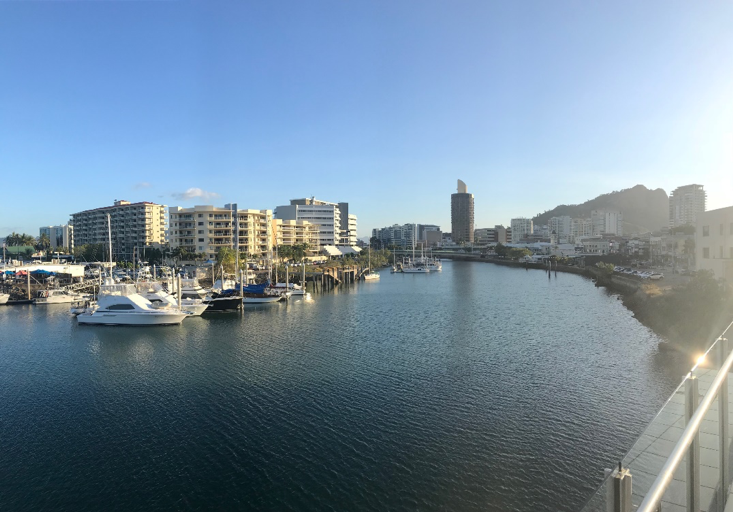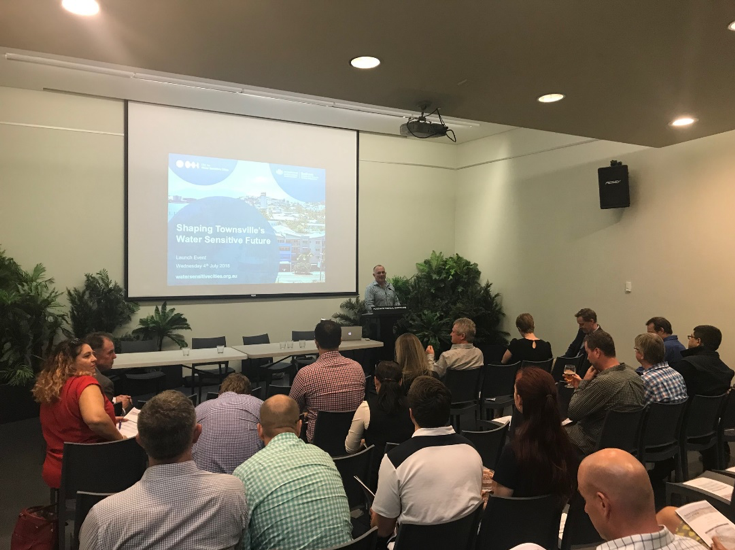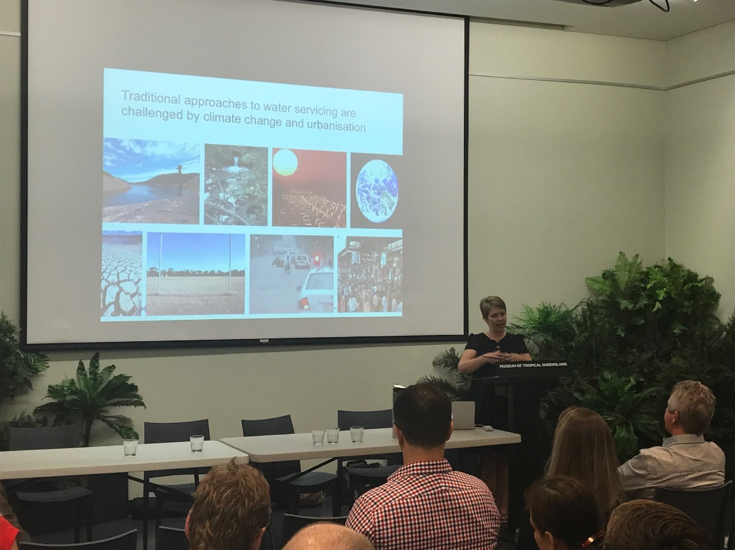We launch a Vision and Transition Strategy for a Water Sensitive Townsville

The CRCWSC launched the Vision and Transition Strategy for a Water Sensitive Townsville on 4 July 2018, at the Museum of Tropical Queensland in Townsville. This strategy is intended to help orient and coordinate action across the many stakeholders who need to work together to achieve Townsville’s envisioned water future.
Beginning in October 2017, the IRP1 team brought together 29 of Townsville’s leaders and strategic thinkers from across water, planning, development, and other related sectors to develop a shared vision for Townsville as a future water sensitive city and strategies for achieving the vision. The vision for a water sensitive Townsville in 50 years is articulated below, consisting of an overarching statement and associated outcome statements:
Townsville is an attractive, resilient city that manages water to enhance healthy ecosystems, embrace dramatic natural water cycles, drive world leading innovation, and support citizens who are proud of their dry tropical identity.
- Townsville celebrates being an attractive, liveable city with integrated and multi-purpose built and natural environments that feature water, bring people together and showcase the city’s dry tropical climate.
- Water is managed holistically to ensure reliability of Townsville’s water system and the long term sustainability of its resources.
- Townsville’s waterways, wetlands, coastline, and surrounding marine and inland environments are healthy, valued and continuously enhanced.
- Townsville people are proud of their connection to water and are empowered to be active and responsible water stewards.
- Townsville is an international water innovation hub that showcases water sensitive technology, practices and design for the dry tropics.
- Inclusive water governance in Townsville enables integration, collaboration, innovation and collective leadership.
- Indigenous water knowledge, values and ways of thinking are valued in the Townsville community and incorporated into water planning, design and management.


Achieving the 50-year water sensitive vision for Townsville will require better integration and collaboration among a broad range of stakeholders. Those attending the launch discussed ways of achieving the vision, stretching their ambitions beyond today’s systems and constraints, and looking for current strengths and opportunities to draw on in Townsville:
We have just come out of a drought, and everyone is focused on water. We are ready to start our journey—it’s a high profile opportunity. Scott Moorhead, Townsville Water and Waste
One of our strengths is our willingness to innovate. We have a science base that is not represented in any other regional city of comparable size across Australia. We’ve got CSIRO, James Cook University, the Australian Institute of Marine Science all located here, along with a range of consultants. Our science base is incomparable, and that’s a great foundation. Prof. Chris Cocklin, James Cook University
Our climate, soils and vegetation in Townsville are different—we know that technologies were developed elsewhere, meaning we have to adapt them to suit our environment. Innovation in that space is very important. Chris Manning, Townsville Water and Waste
Our community resilience is a real strength. If you throw the right challenge to the community with the right messages and with the linkages to those values that are really important, then the community will step up. Fiona Chandler, Alluvium Consulting
The workshops really highlighted the cross-section of capacity that exists in Townsville. The diverse ideas were really inspiring, I certainly learned a lot from others from different industries. We need to harness these ideas, and certainly within the context of the recent drought while it is still fresh in people’s minds. Janice Moody, GHD


The publication is an output of CRCWSC Integrated Research Project 1 (IRP1): Water sensitive city visions and transition strategies. Its companion document, Benchmarking, envisioning and transition planning for a water sensitive Townsville: final case report, provides a full description of the case study method and detailed analyses that underpin the results.
FOR MORE INFORMATION
Contact Katie Hammer on +61 3 9905 4213 or katie.hammer@monash.edu